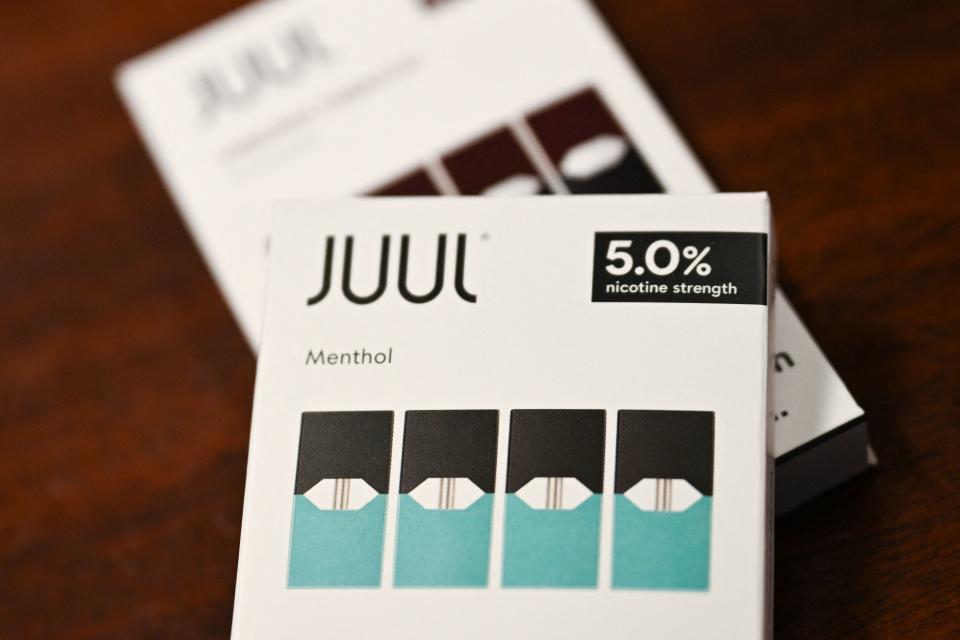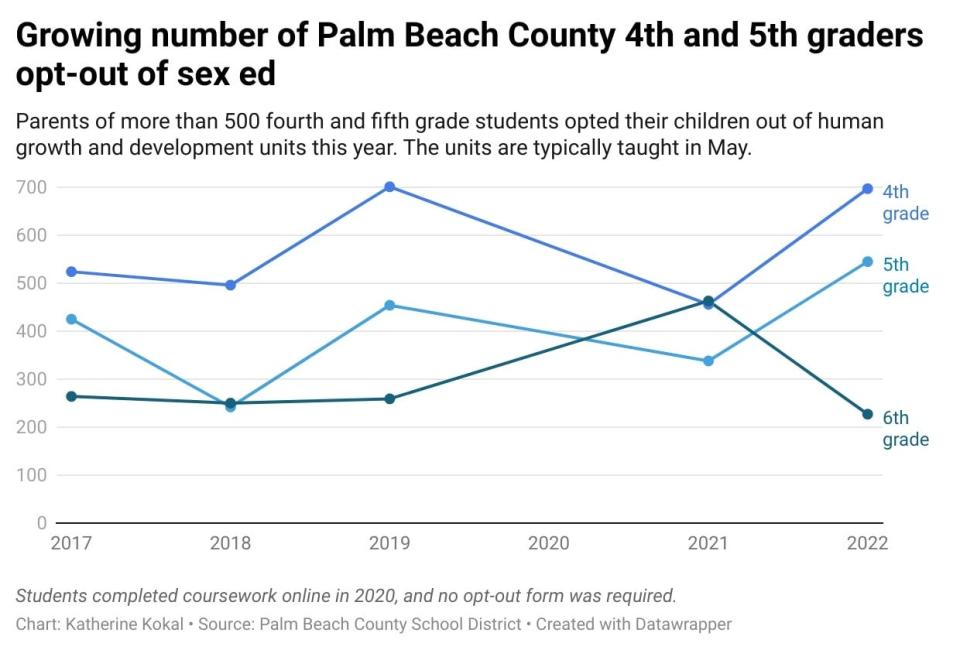The rundown: Palm Beach County schools to get $10M settlement with Juul e-cigarette maker
Palm Beach County School Board members met Wednesday to approve an initial settlement with e-cigarette manufacturer Juul Labs Inc. as a result of joining a national lawsuit brought by more than 1,400 government agencies.
The settlement will likely result in more than $10 million for Palm Beach County schools over the next five years, according to district staff.
The school district was among the governmental entities and 32 tribal governments that sued the company, along with 8,500 individuals.
JUUL is a brand of e-cigarette that is shaped like a USB flash drive. Like other e-cigarettes, JUUL is a battery-powered device that heats a liquid containing nicotine to produce an aerosol that is inhaled, according to the CDC. The device became popular with teens, who are prohibited from buying tobacco in Florida until age 21.

The school district sued the company in 2019 in an attempt to recoup resources it sunk into creating a night class for students suspended for vaping, revising the student conduct code to prohibit e-cigarette use and conducting town hall meetings to alert parents to the danger vaping poses.
Plaintiffs argued that Juul launched a campaign to lure underage people into buying the e-cigarettes with imagery reminiscent of Big Tobacco marketing schemes.
In December, Juul settled four different massive lawsuits accusing the company of marketing to teens.

Here's a rundown of other news from the school board meeting:
1. Sex ed materials: Here's the breakdown of what kids learn about in each grade
Board members approved a list of instructional materials used for human growth and development.
The instructional materials cover the following topics in each grade:
Kindergarten and First Grade: Character education, medicine and safety signs, germs and hygiene including colds and flu, lice and hand washing, and personal safety.
Second Grade: Avoiding drugs and violence including illegal drugs and smoking, germs and hygiene including safe sneezing.
Third Grade: Avoiding drugs and violence, germs and hygiene including boogers, handwashing and vaccines, personal safety including digital etiquette, social media and internet safety.
Fourth and Fifth Grades: Peer pressure, goal setting, online safety and social media, puberty topics including acne, adolescence, and hormones, AIDS information, and germs. Reproductive systems for fifth grade only.
Sixth Grade: Media influence and decision-making, puberty, human reproduction, and consent.
Seventh Grade: Media safety and teen dating violence, consent, human reproduction, contraception and sexually transmitted infections.
Eighth and Ninth Grades: Media safety and teen dating violence, consent, reproductive systems, contraception and sexually transmitted infections.
10th Grade: Teen dating violence, consent and sexting, contraception and sexually transmitted infections.
11th Grade: Teen dating violence, setting boundaries, sexual harassment, contraception and sexually transmitted infections.
12th Grade: Teen dating violence, social media and sexting, consent and sexual harassment, contraception and sexually transmitted infections.
The board also approved the district's opt-out policy, which allows parents to remove their student of any age from human growth and development units. If students are opted out, they are given an alternative assignment outside the classroom.
A number of fourth and fifth grade students have opted out of the human growth and development curriculum in recent years: 697 fourth grade students opted out of the unit in 2022, up from 456 in 2021, according to district records.
In 2022, there were 545 fifth graders who opted out, up from 338 in 2021. But the number of sixth graders who have opted out dropped in 2022, to 227 from 463 students in 2021.

2. New equity policy OK'd after state pressure to edit
The board also approved its new equity policy that was revised after pressure from the state to fall in line with legislation that Gov. Ron DeSantis has championed in an effort to combat what he calls “wokeness” in Florida schools.
The original policy was developed through collaboration with community groups in 2021 along with its charter for its diversity, equity and inclusion committee. Board members agreed Wednesday to delete and completely replace four paragraphs of the policy and make other language changes that appear to walk it back.
Instead of teaching students to “interrupt and dismantle harmful or inequitable practices and policies, eliminate implicit and explicit biases,” the new equity policy states that the district will aim to develop students’ “full academic and social potential and to cultivate (their) unique gifts, talents and interests.”
Board members agreed to ax references to removing academic barriers based on race, ethnicity, gender, gender identity, sexual orientation, disability or socioeconomic status of students, and added language to clarify that school curricula be “age and developmentally appropriate.”
Learn more:Palm Beach County schools propose axing policy references to barriers based on race, LBGTQ
3. New rules for public comments: No insults, signs or flags
The board voted to approve a new public comment policy aimed at maintaining decorum among speakers at their meetings.
They prohibit signs and flags and stop speakers from directly addressing or insulting individual members of the school board or mentioning any person's candidacy for office.
The changes come after three years of meetings where tensions have run high over topics ranging from face masks to school boundaries to new guidance on supporting LGBTQ+ youth.
Board Chairman Frank Barbieri has supported the new rules, recounting times when members of the public had yelled out of turn, insulted board members or kept speaking after the three-minute cutoff. Part of his role as chair is to ask speakers to stop speaking when they break the rules of decorum.

Read more:Leave signs and insults at home: Palm Beach County School Board could clamp down on speakers
Katherine Kokal is a journalist covering education at The Palm Beach Post. You can reach her at kkokal@pbpost.com. Help support our work, subscribe today!
This article originally appeared on Palm Beach Post: Palm Beach County schools news: Juul settlement, equity policy, sex ed

